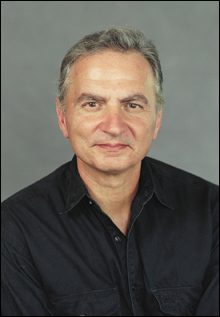
Bo Lozoff
|
My wife and I were drinking gin-and-tonics with old friends in their lovely backyard garden. As I talked about my reporting on prison issues, I began to describe how our “correctional” system had turned into a monster over the past 30 years.
The facts are almost unbelievable: As a nation, our incarceration rate is five times what it was 30 years ago and the highest in the world. We have five percent of the world’s population and 25 percent of its prisoners — over 2 million human beings, whose detention costs us annually about $25,000 a person. Only in America are there tens of thousands of mostly mentally ill inmates kenneled in “supermaxes,” where the prolonged solitary confinement is, under the United Nations’ and Amnesty International’s definitions, torture. Nearly 70 percent of ex-cons return to crime. No matter how many prisons we build, they become overcrowded. And much of the world sees American capital punishment as barbaric.
“I’ll tell you what should be done,” the man said, looking at me sternly. “It would cut down on the overcrowding and the expense. There’s an answer for people who repeatedly break the rules of society: Kill them.”
He was not joking.
An intelligent and highly educated man, he is much more conservative than I, but I had always found his conservatism nuanced. There wasn’t any nuance on this issue.
His wife quickly changed the topic. My wife and I didn’t stay long. I wondered aloud to her about what had happened. I didn’t believe my friend really wanted to have hundreds of thousands of prisoners executed. So where the hell did this stance come from? Maybe he was the victim of a crime. But his harshness fit with American policy toward lawbreakers.
A few days later, I sat on the sunny deck of a Belfast ice-cream parlor interviewing Bo Lozoff, a salty-talking self-described spiritual teacher who has visited 1100 prisons in 34 years. To a lot of convicts, he is a guru. His Human Kindness Foundation has given nearly 500,000 copies of his book, We’re All Doing Time, free to prisoners. It has a foreword by the Dalai Lama. He was touring the state giving public talks and holding “workshops” in the prisons to teach inmates how to become calmer and kinder — with limited results, he admitted.
Given his great experience, could he explain the American incarceration madness?
“Prisoners are the new niggers, gooks, kikes,” he replied. Criminals are the present-day, socially acceptable objects of hatred, the scapegoats, and this hatred is fueled by media and political opportunism.
As a reporter, I knew about political opportunism. I had just received a press release from Bill Diamond, the Democratic state senator who heads the Criminal Justice Committee. Because a judge had given a light sentence to a man who possessed child pornography, Diamond suggested heavier sentences for a whole class of offenders. Only months before, he had publicly agonized about prison overcrowding.
Treating prisoners harshly helps create the overcrowding, Lozoff added. Most criminals are locked up for nonviolent crimes, but prisons are violent and neglectful. Rehabilitation has been abandoned. On their release, resentful ex-convicts abuse society. Thus, the high recidivism rate.
But why have convicts, particularly, become such targets? Historically, cruelty toward convicts has been common, but only recently did Americans decide to be so harsh to this group — and continually enlarge the group.
I knew some explanations: the War on Drugs, the sexual moral panics, the prison-industrial complex, the rage for lengthy mandatory sentences. And then there is racism: Over 70 percent of prisoners are African American or Hispanic.
To give a deeper explanation, Lozoff told a story.
In 1999, just after hearing the news of the Columbine school shootings, he and his wife went into a scheduled retreat with an Amish-like community in their home state of North Carolina. For three days, they were not exposed to the news media.
When they re-emerged, “There already was theme music, graphics, and commercials” on the television news shows about Columbine, he said. “You have to back up to see the evil: making money from Columbine.”
This sight of media opportunism helped convince him that in America every value has been subordinated to a nightmarish, “narcissistic” consumerism. But selfishness is unhappy. Lozoff cited three signs of our unhappiness: We consume antidepressants like no other society. “Our children are the most violent on earth.” And then there are the prisons.
In a narcissistic society, “People without the resources to fulfill their self-centeredness commit crimes,” he said. Criminals tend to be poor and uneducated. Many are mentally ill and addicted to drugs.
As well, in a selfish, unhappy society, many people blame others for their troubles. And self-centered people don’t have time to look into the criminal-justice and prison systems and demand change.
Lozoff’s thoughts rang a bell. Earlier this year, I had interviewed Ruth Wilson Gilmore, a University of Southern California scholar. She believes that our country’s leaders enacted “saturation” policing, which fed the prisons, and “iron-fisted” imprisonment because they feared a formidable group of economic losers: those with limited education, many of them black, who would have worked in manufacturing before it began collapsing in the corporate-globalizing economy just about 30 years ago.